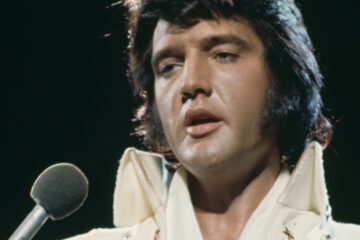In the late 1960s, the Beatles had cast such a large shadow over the world that not even the band could escape from under it—until they opted to “kill” the band and hold a funeral for themselves. Their attempt to distance themselves from their global legacy interestingly came at the height of their fame. But, of course, that tremendous notoriety was the whole problem.
Paul didn’t want to be Paul anymore. John didn’t want to be John, George and Ringo, the same. So, they decided to form a new band clad in neon military regalia: Sgt. Pepper’s Lonely Hearts Club Band.
The Iconic Album That Served As A Beatles “Funeral”
Ironically, the Beatles’ immense success became somewhat limiting toward the end of their career in the late 1960s. After all, one would be hard-pressed to find someone who didn’t have at least a vague idea of who the Fab Four was. No matter what creative endeavors they pursued on their albums, the band couldn’t escape the individual celebrity of Paul, John, Ringo, and George.
“We thought, if we make another record under the Beatles, when I walk up to the microphone, it’s Paul walking up to the microphone,” Paul McCartney later said (via Far Out Magazine). “When John walks up, it’s John singing the song. It’d be quite nice if it’s not Paul, it’s this guy out of another group. So, he came up with the idea of Sgt. Pepper’s Lonely Hearts Club Band, an eponymous album by a novel ensemble instead of the same old Beatles.
Even the Beatles’ inclusion of their name on the album cover seemed to signal to this “death” of the Fab Four. In the foreground, a floral arrangement spells out “Beatles” as if it were a funeral. “It was freeing,” McCartney said in another interview. “We didn’t keep up that idea all the time, but that was the basic idea that we would make something that was very free.”
By adopting new personas and effectively abandoning their ubiquitous musical reputations, McCartney said he and his bandmates were able to create music that was “something that this other band might make, instead of doing something that we thought the Beatles ought to make.”
Art Made In Spite Of Anticipations Or Reviews
Throughout their relatively short musical career, the Beatles kept a fairly consistent release schedule, releasing an average of one full album per year. Still, this didn’t stop music critics from filling the gap between Revolver in 1966 and Sgt. Pepper’s Lonely Hearts Club Band in 1967 with claims that the Beatles had no other musical contributions to offer.
“One [music paper] said, ‘Oh, the Beatles have dried up. They’ve finished. We haven’t heard anything from them, you know. They’ve run out of ideas,’” McCartney said. “So, we were quietly tinkering away at Abbey Road, knowing we hadn’t run out of ideas and knowing it was gonna be really great to be able to say, ‘No, we didn’t run out. Check this out!’ And give them Sgt. Pepper and go, ‘Take that back!’”
However, not even a highly anticipated album like Sgt. Pepper’s was immune from criticism—although the Fab Four (and their fans) stood so firm in their beliefs that the harsher critics later recanted their judgments. “The New York Times said it was terrible,” Macca said. “Linda [McCartney] met him in the street and said, ‘You’re crazy, man. It’s a great album! What are you talking about?’ There must have been a lot of people that said it to him that week, because he took it back a week later. He said, ‘You know what, it’s grown on me. I like it.’”
Perhaps, by McCartney’s logic, the music critic for the New York Times just needed an acclimation period to adjust to the Beatles’ “funeral” and their subsequent new band.



